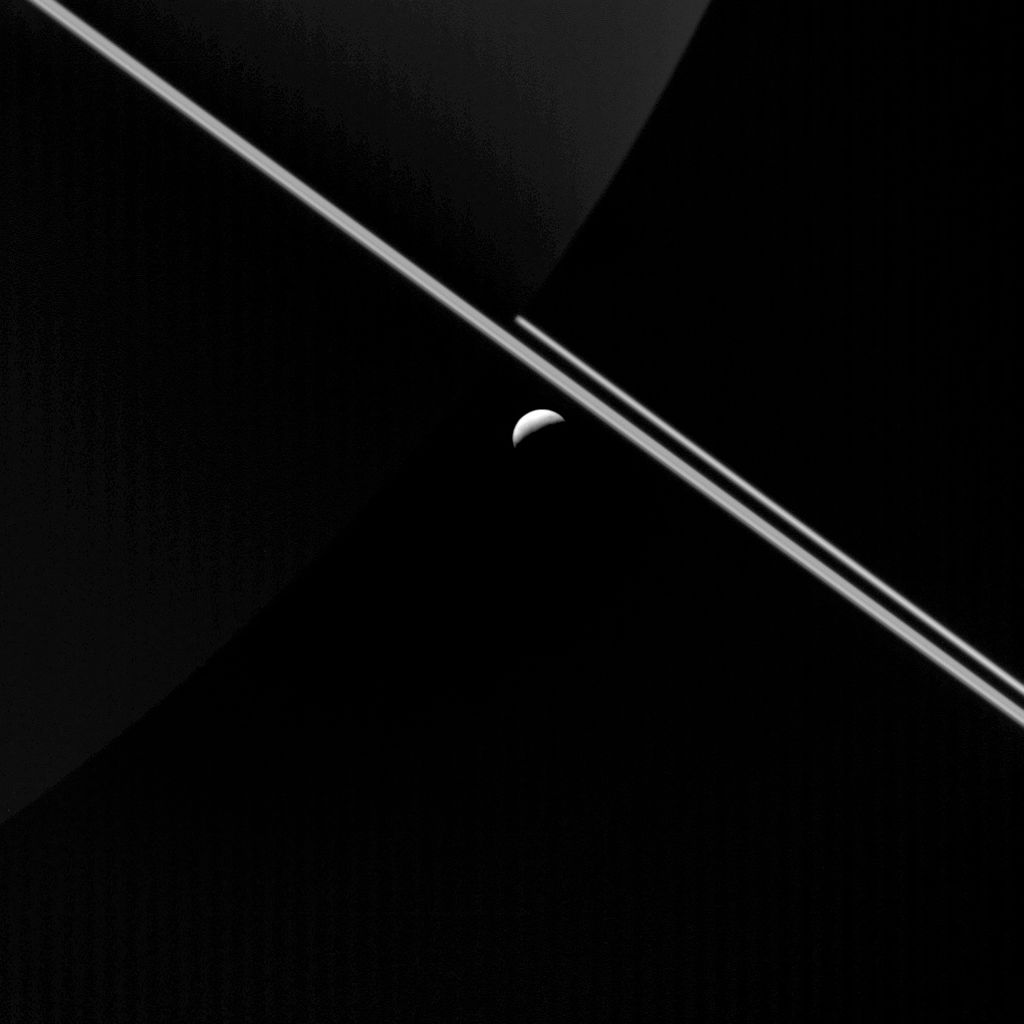Scientists find new signs of possible microbial life on Saturn moon


A free daily email with the biggest news stories of the day – and the best features from TheWeek.com
You are now subscribed
Your newsletter sign-up was successful
Saturn's moon Enceladus, which is believed to have a vast ocean beneath its icy surface, may be a candidate to house microbial life, a new study published in Nature Astronomy by scientists at the University of Arizona and Paris Science and Lettres University suggests, Science Daily reports.
The authors made sure to clarify that their research does not in any way confirm the existence of extraterrestrial microbes on Enceladus, but they did determine, via mathematical models, that the moon's relatively high concentration of methane detected by the Cassini spacecraft is consistent with microbial hydrothermal vent activity on the bottom of Earth's oceans. The researchers were confident that the methane concentration measured by Cassini was too high to have been produced by known physical processes found on Earth, though that doesn't rule out the possibility that unrecorded abiotic processes are the cause, rather than something biological in nature.
Regis Ferriere, an associate professor at the University of Arizona, summed up the purpose of the study. "Obviously, we are not concluding that life exists in Enceladus' ocean," he said. "Rather, we wanted to underscore how likely it would be that Enceladus' hydrothermal vents could be habitable to Earth-like microorganisms. Very likely, the Cassini data tell us, according to our models." Read more at Science Daily.
The Week
Escape your echo chamber. Get the facts behind the news, plus analysis from multiple perspectives.

Sign up for The Week's Free Newsletters
From our morning news briefing to a weekly Good News Newsletter, get the best of The Week delivered directly to your inbox.
From our morning news briefing to a weekly Good News Newsletter, get the best of The Week delivered directly to your inbox.
A free daily email with the biggest news stories of the day – and the best features from TheWeek.com
Tim is a staff writer at The Week and has contributed to Bedford and Bowery and The New York Transatlantic. He is a graduate of Occidental College and NYU's journalism school. Tim enjoys writing about baseball, Europe, and extinct megafauna. He lives in New York City.
-
 Political cartoons for February 16
Political cartoons for February 16Cartoons Monday’s political cartoons include President's Day, a valentine from the Epstein files, and more
-
 Regent Hong Kong: a tranquil haven with a prime waterfront spot
Regent Hong Kong: a tranquil haven with a prime waterfront spotThe Week Recommends The trendy hotel recently underwent an extensive two-year revamp
-
 The problem with diagnosing profound autism
The problem with diagnosing profound autismThe Explainer Experts are reconsidering the idea of autism as a spectrum, which could impact diagnoses and policy making for the condition
-
 Nasa’s new dark matter map
Nasa’s new dark matter mapUnder the Radar High-resolution images may help scientists understand the ‘gravitational scaffolding into which everything else falls and is built into galaxies’
-
 Moon dust has earthly elements thanks to a magnetic bridge
Moon dust has earthly elements thanks to a magnetic bridgeUnder the radar The substances could help supply a lunar base
-
 How Mars influences Earth’s climate
How Mars influences Earth’s climateThe explainer A pull in the right direction
-
 The ‘eclipse of the century’ is coming in 2027
The ‘eclipse of the century’ is coming in 2027Under the radar It will last for over 6 minutes
-
 NASA discovered ‘resilient’ microbes in its cleanrooms
NASA discovered ‘resilient’ microbes in its cleanroomsUnder the radar The bacteria could contaminate space
-
 Artemis II: back to the Moon
Artemis II: back to the MoonThe Explainer Four astronauts will soon be blasting off into deep space – the first to do so in half a century
-
 The mysterious origin of a lemon-shaped exoplanet
The mysterious origin of a lemon-shaped exoplanetUnder the radar It may be made from a former star
-
 The 5 biggest astronomy stories of 2025
The 5 biggest astronomy stories of 2025In the spotlight From moons, to comets, to pop stars in orbit
